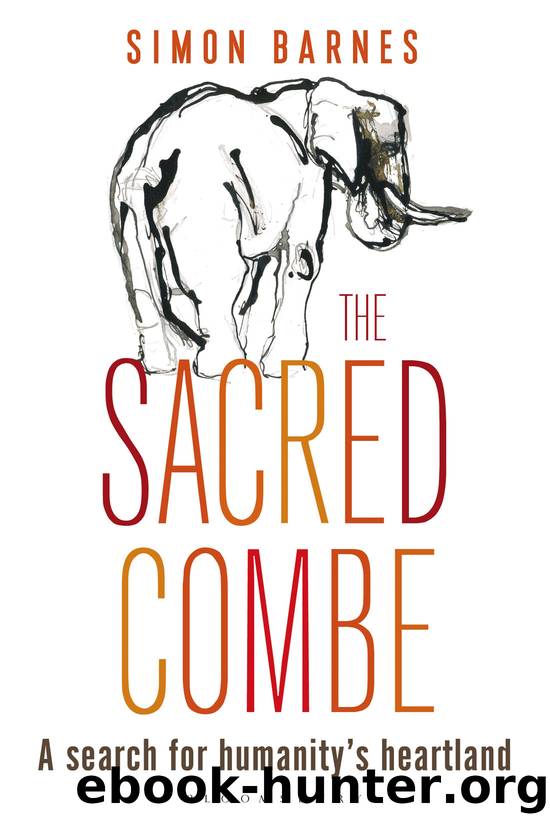The Sacred Combe by Simon Barnes

Author:Simon Barnes
Language: eng
Format: epub
Publisher: Bloomsbury Publishing
62
Are there Werewolves Still for Tea?
Paradise can exist in time as well as space and in both cases, of course, it is largely imaginary. The Golden Age is a moving fixture in human consciousness: always about one and a half ages before our own. The years before the First World War are regarded as an idyll: a time of privileged perfection. This was also - after Eveâs proffering of the apple to Adam - one of the greatest look-behindjer moments in all history. Rupert Brooke, scribbling homesick lines in a German café and, in the second verse, not troubling to hide his antipathy for the German Jews drinking beer at a nearby table - no one quotes that bit for some reason - summed up forever our notion of the Edwardian idyll in the poemâs concluding couplet:
Stands the church clock at ten to three?
And is there honey still for tea?
Time itself has stopped. Nothing will ever change. We are locked in an endless era of peace and prosperity with a comfortable unassuming dominance over the entire world. And we 21st century humans can look back in glorious vicarious nostalgia and savour the fact that this paradise was built on the slopes of Vesuvius. The writer who best captures these times is Saki, pen name of H. H. Munro, who died in the First World War; his last words were: âPut that bloody cigarette out.â Before the war he was the great narrator of Edwardian drawing-rooms. His best stories are fantasies of the wild worldâs invasion of this false paradise, hinting at the real passions and horrors that lurk in every human breast and are all the more vivid for their backdrop of chintz, cucumber sandwiches and visits from the vicar. My favourite tale is Gabriel-Ernest. It tells of how the highly respectable Van Cheele finds a naked boy sunning himself in the woods. âAt night I hunt on four feet,â says the boy. Van Cheele tells him to leave - so next day the boy then turns up, just as naked, in Van Cheeleâs house. Miss Van Cheele, the ownerâs aunt, takes pity on him and gives him the name of Gabriel-Ernest. âClothed, clean and groomed, the boy lost none of his uncanniness.â The pet spaniel bolts, and lurks shivering outside the house. Meanwhile the aunt arranges for Gabriel-Ernest to help out with the little children at the Sunday school tea while Van Cheele visits an artist friend who had seen something odd in the woods: a boy, naked in the setting sun. The sun disappeared: âAnd at the same moment an astounding thing happened â the boy vanished too!â What, asks Van Cheele? Altogether? âNo; that is the dreadful part of it⦠on the open hillside where the boy had been standing a second ago, stood a largeâ¦â
But come. Read the rest for yourself, in Sakiâs own words. Just Google Gabriel-Ernest. But before you do so, letâs savour that moment when Van Cheele finds the boy in the morning-room.
Download
This site does not store any files on its server. We only index and link to content provided by other sites. Please contact the content providers to delete copyright contents if any and email us, we'll remove relevant links or contents immediately.
The Lonely City by Olivia Laing(4787)
Animal Frequency by Melissa Alvarez(4445)
All Creatures Great and Small by James Herriot(4295)
Walking by Henry David Thoreau(3939)
Exit West by Mohsin Hamid(3809)
Origin Story: A Big History of Everything by David Christian(3677)
COSMOS by Carl Sagan(3606)
How to Read Water: Clues and Patterns from Puddles to the Sea (Natural Navigation) by Tristan Gooley(3448)
Hedgerow by John Wright(3340)
How to Read Nature by Tristan Gooley(3315)
The Inner Life of Animals by Peter Wohlleben(3298)
How to Do Nothing by Jenny Odell(3287)
Project Animal Farm: An Accidental Journey into the Secret World of Farming and the Truth About Our Food by Sonia Faruqi(3207)
Origin Story by David Christian(3184)
Water by Ian Miller(3166)
A Forest Journey by John Perlin(3055)
The Plant Messiah by Carlos Magdalena(2915)
A Wilder Time by William E. Glassley(2846)
Forests: A Very Short Introduction by Jaboury Ghazoul(2824)
